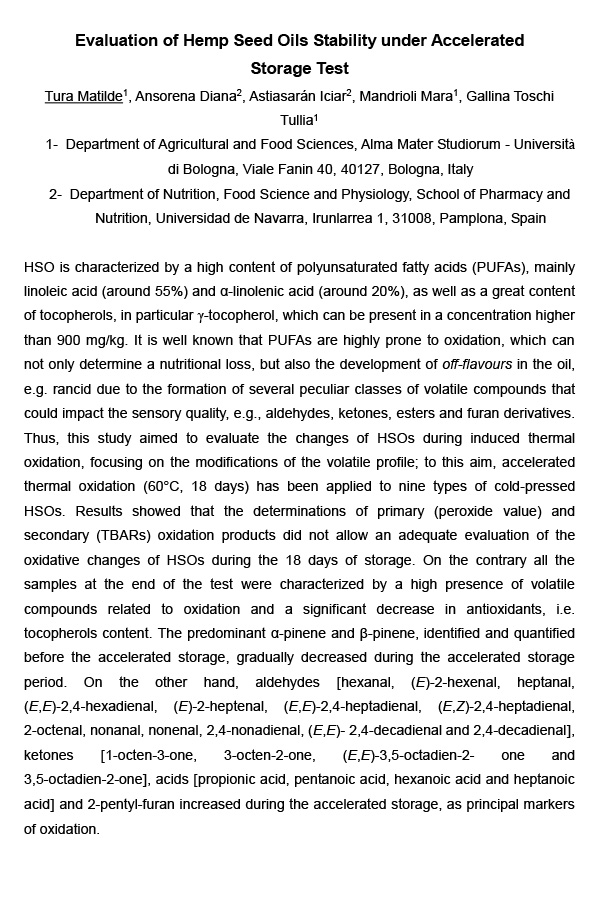HSO is characterized by a high content of polyunsaturated fatty acids (PUFAs), mainly linoleic acid (around 55%) and α-linolenic acid (around 20%), as well as a great content of tocopherols, in particular γ-tocopherol, which can be present in a concentration higher than 900 mg/kg. It is well known that PUFAs are highly prone to oxidation, which can not only determine a nutritional loss, but also the development of off-flavours in the oil, e.g. rancid due to the formation of several peculiar classes of volatile compounds that could impact the sensory quality, e.g., aldehydes, ketones, esters and furan derivatives. Thus, this study aimed to evaluate the changes of HSOs during induced thermal oxidation, focusing on the modifications of the volatile profile; to this aim, accelerated thermal oxidation (60°C, 18 days) has been applied to nine types of cold-pressed HSOs. Results showed that the determinations of primary (peroxide value) and secondary (TBARs) oxidation products did not allow an adequate evaluation of the oxidative changes of HSOs during the 18 days of storage. On the contrary all the samples at the end of the test were characterized by a high presence of volatile compounds related to oxidation and a significant decrease in antioxidants, i.e. tocopherols content. The predominant α-pinene and β-pinene, identified and quantified before the accelerated storage, gradually decreased during the accelerated storage period. On the other hand, aldehydes [hexanal, (E)-2-hexenal, heptanal, (E,E)-2,4-hexadienal, (E)-2-heptenal, (E,E)-2,4-heptadienal, (E,Z)-2,4-heptadienal, 2-octenal, nonanal, nonenal, 2,4-nonadienal, (E,E)- 2,4-decadienal and 2,4-decadienal], ketones [1-octen-3-one, 3-octen-2-one, (E,E)-3,5-octadien-2- one and 3,5-octadien-2-one], acids [propionic acid, pentanoic acid, hexanoic acid and heptanoic acid] and 2-pentyl-furan increased during the accelerated storage, as principal markers of oxidation.
